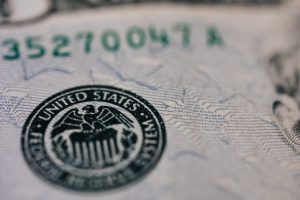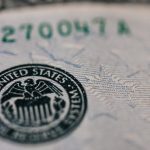Although the United Kingdom hasn’t formally invoked Article 50 to begin its withdrawal from the European Union, much has been speculated about the consequences. Since no one knows for certain the repercussions Brexit may have on the world economy, it is vital for business journalists to follow key players who will help navigate the uncertain waters. Here are 5 must-follow Brexit Twitter accounts.
1. @theresa_may
The most prominent figure to emerge from the vote is Theresa May. After Prime Minster David Cameron stepped down from his leadership post, May quickly emerged as leader of the Conservative Party- winning a series of votes to assume the PM’s office on July 13.
May is an essential figure to follow on Brexit because it is her government that will trigger Article 50 of the Treaty on European Union and formally negotiate the U.K.’s withdrawal from the E.U.
TM: “Brexit means Brexit, and we’re going to make a success of it.” #TM4PM
— Theresa May (@theresa_may) July 11, 2016
2. @bankofengland
The Bank of England, the central bank of the U.K., is the British equivalent of the U.S. Federal Reserve. The bank is the nation’s most important decision maker regarding monetary policy. Its job is to control the country’s money supply, monitor inflation and set interest rates.
Leading up to the Brexit vote, several pro-leave campaigners accused the governor of the bank, Mark Carney, of bias for expressing blatant pro-remain sentiments on the bank’s behalf. Carney maintained it was his duty to speak up. Be sure to keep an eye on the bank, especially once the fuller manifestations of Brexit’s effects on the British economy come into view.
Carney: “We have taken all the necessary steps to prepare for today’s events”https://t.co/lauI8sPQdA #EUref #brexit pic.twitter.com/MmSo0GqVi6
— Bank of England (@bankofengland) June 24, 2016
3. @BorisJohnson
Boris Johnson is sometimes called the Donald Trump of the U.K., known for his larger-than-life personality. The mayor of London from 2008 through May of this year, Johnson’s name was tossed around as a possible replacement for David Cameron.
Johnson was one of the most prolific leaders of the Brexit campaign, stressing issues such as immigration, Brussels bureaucracy and European regulations on financial institutions. He currently holds the office of Foreign Secretary in Theresa May’s government, and will be a key player once negotiations for withdrawal begin.
Morning folks. Polls are open until 10pm. Now is the time to believe in this country and #VoteLeave. Let’s make today our Independence Day.
— Boris Johnson (@BorisJohnson) June 23, 2016
4. @NicolaSturgeon
Nicola Sturgeon is the First Minister of Scotland, and was a notable member of the “Remain” side. She’s a key figure to watch because of the fragile relationship between Scotland and the rest of the U.K. Scotland overwhelmingly voted to stay in the E.U., but was out-voted by the rest of Britain. The action increased the strain on Scottish-English relations, which had come to a head in the failed Scottish independence referendum of 2014.
Sturgeon and other senior Scottish officials have subsequently called for a second Scottish referendum on independence, since the majority of Scots wish to remain in the E.U. If this were to happen, it would place extra pressure on London, which might have to simultaneously deal with a British dissolution and Brexit.
I will be making a statement about the #EUref result and its implications for Scotland at a news conference later this morning.
— Nicola Sturgeon (@NicolaSturgeon) June 24, 2016
5. @Barclays
Barclays is a British multinational financial services company headquartered in London. Barclays was one of many British businesses to issue warnings regarding Brexit, cautioning that a “Leave” vote could lead to job losses, as big banks could move jobs out of London to other places in the E.U.
The big banks are concerned with “passporting rights”: Under single market rules, companies in one country can “passport” their services to the rest of the E.U. If this single market access is revoked, there is not much sense in multinationals keeping London as their European headquarters. The upshot could be thousands of job losses and London losing its place as a preeminent financial center. While Barclays has said that nothing will change for the time being, that could evolve rapidly if Brexit negotiations don’t run smoothly.
Statement from #Barclays CEO Jes Staley on EU Referendum https://t.co/uMHbEpfIFj
— Barclays Bank (@Barclays) June 24, 2016










